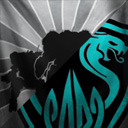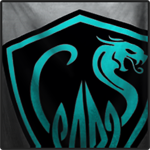 Rejarial Galatan, on 22 January 2013 - 11:11 PM, said:
Rejarial Galatan, on 22 January 2013 - 11:11 PM, said:
Okay, first off, you know nothing of which you speak. What you call cowardice, I call: tactical retreat, smart playing, common sense, non-lemming bull rush behavior.
Just who the heck <so wish I could use the word I WANT to use here, but, what ever> do you think YOU are to decry ANYONE of a play style that is NOT YOURS? It is idiotic at best to bull rush into a fight and get torn to bits because of it. There is a time honored saying, that applies DIRECTLY to you! Discretion is the better part of valor." which, means: if it is going to kill you to engage in a fight you cannot win, then, NOT engaging is the best choice, it is not cowardice, it is a viable, tactical move on the player's part. Oh, and uh, you this guy, from like 500 BCE in China? Name: Sun Tzu? He has a word or two on this:
The supreme art of war is to subdue the enemy with out ever fighting.
Supreme excellence consists of breaking the enemy's resistance with out ever fighting.
Ultimate excellence lies not in winning every battle, but in defeating the enemy with out ever fighting.
To win 100 victories in 100 battles is not the acme of skill. To subdue the enemy with out fighting is the acme of skill.
He will win who knows when to fight and when not to fight.
He who is prudent and lies in wait for an enemy who is not, will be victorious.
To fight and conquer in all your battles is not supreme excellence; supreme excellence consists of breaking your enemy's resistance without ever fighting.
So in war, the way is to avoid what is strong, and strike what is weak.
These words are by Sun Tzu, and by your definition in your rather zealous post, define him as coward as would be any who fight by his wisdom. Sorry dude, but, honestly, cowardice lies in attacking that which you do not understand.
I have a copy of
The Art of War in my library - I suggest re-reading it. In fact, "Sun Tzu" is a title, not a name. The author's style name, "Changqing," survives, but his precise name is lost to history - a fact which contributes to some dispute among historians as to whether he actually existed.
You spend an embarrassing amount of time ranting in high dudgeon about things I've never said; it's quite obvious you've only skimmed my post at best - and seem to have given the same treatment to the
The Art of War. You begin your diatribe with the self-defeating premise that it's arrogant of me to tell other people what they should do, while at the same time insisting that the tactics you (again wrongly) attribute to me are bad - then tell me to take the advice of a comic relief character from
Henry IV, Part One. You then proceed with random quotes from
The Art of War, a work which is largely concerned with stategic superiority in addition to the tactical combat we're discussing - and, where applicable, the work you quote agrees with
me.
None of your quotations which deal with winning by not fighting have anything to do with tactical combat - these are in reference to strategic maneuvers, political stratagems, information warfare, and psychological operations. What Sun Tzu says is that it is best to never need to fight; but if one must fight, it is best to have have secured victory before ever the battle is joined. On the tactical side, however, Sun Tzu agrees with me that forceful action is necessary on the attack: "Let your plans be dark and impenetrable as night, and when you move, fall like a thunderbolt." As for information warfare, your own quotations suffice: "He will win who knows when to fight and when not to fight.""So in war, the way is to avoid what is strong, and strike what is weak." How do you know where your enemy is weak and strong? How can you tell when to attack if your scouts are hiding behind the Atlas' knees?
Indeed, Sun Tzu would tell you that deception is at the heart of warfare - both in protecting your own secrets, and in uncovering the secrets of your enemies. This emphasis on knowledge is at the core of Sun Tzu's military philosophy and gave rise to one of his most-quoted sayings: "Know your enemy and know yourself, and you need not fear the outcome of a hundred battles." You, not knowing your enemy, leap rapidly to many conclusions - you accuse me of advocating "lemming bull-rush tactics," when in fact I do not advocate any specific form of attack. Rather, I advocate unified, aggressive action when the time to attack comes, and I agitate against timidity in the face of danger. Sun Tzu agrees. You also, in misquoting the
The Art of War, overestimate your own knowledge and tactical acumen. Sun Tsu has a word for
you. He says this: "If you know neither the enemy nor yourself, you will succumb in every battle."
Edited by Void Angel, 23 January 2013 - 04:07 AM.





























